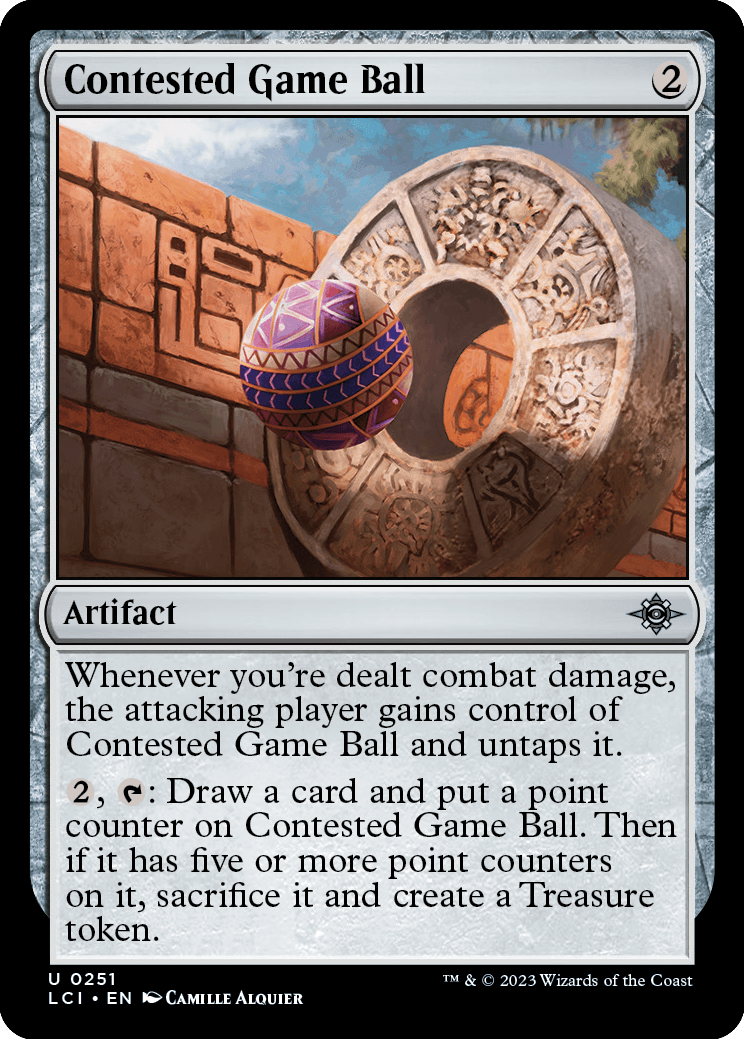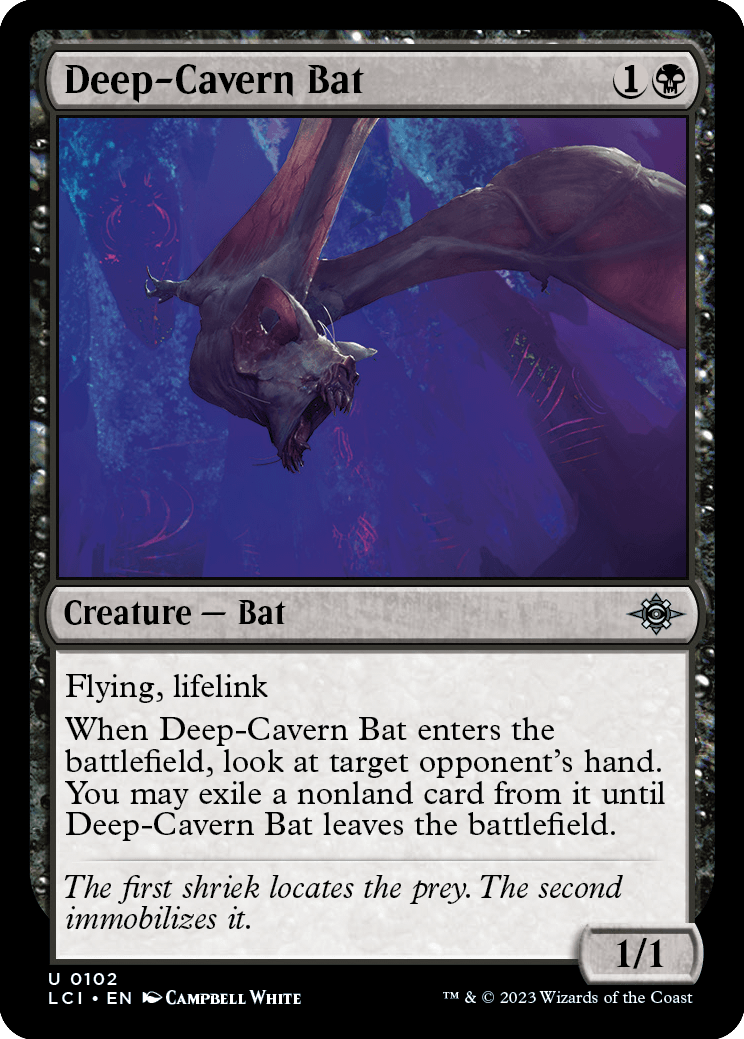Welcome back to Ixalan! It’s got everything the people were clamoring for: Vampires, Dinosaurs, Caves, oh my (wait, nobody clamored for Caves?). It also has some cards that might earn players some Warnings, so let’s do some spelunking into the card gallery and see what awaits us down there aside from drums, drums in the deep.
Five cards have one or more triggers that upgrade to a Warning when missed:

“Whenever you’re dealt combat damage, the attacking player gains control of Contested Game Ball and untaps it.”
An artifact that can turn unspent mana into drawing cards is pretty decent, so having to give an opponent that artifact is pretty bad!
This card is interesting because it’s rare for permanents to easily change control like Contested Game Ball does. As far as the trigger is concerned, missing it will only upgrade if the player who currently controls it also owns it. That is, if it started in Amelia’s deck, only Amelia will ever get a Warning if she forgets to give it to an opponent when she’s dealt combat damage. If Nate controls Amelia’s Contested Game Ball, Nate missing the same trigger won’t earn a Warning! Or a foul? I don’t know. Use your favorite sports metaphor.
“Whenever this creature attacks while you don’t control another Dinosaur, put a stun counter on it.”
Much like in real life, hitting something so hard with your head that you stun yourself is quite bad. If a player attacks with this Dinosaur while they control no other Dinosaurs and fails to put a stun counter on it, they’ll earn a Warning.
3. Saheeli, the Sun’s Brilliance
“[Create a token…]. Sacrifice it at the beginning of the next end step.”
Making a copy of a creature or artifact and giving it haste is great. Sacrificing that same creature or artifact later is much less good. If a player forgets to sacrifice their artificed friend at the beginning of the next end step, they’ll earn a Warning. As a reminder, this remedy doesn’t expire, so even if it’s somehow not noticed until several turns later, the token Saheeli made will be sacrificed.
“Whenever this creature attacks, mill a card.”
Our usual metric of “is this card played because of or in spite of this trigger?” tends to fall apart at the s(cr)eams when we look at self-mill like Screaming Phantom. After all, there are several cards in this set that care about permanent cards entering a player’s graveyard from anywhere, and self-mill helps fuel that gameplan!
However, if we look at this card in a vacuum, it’s clear that it has no direct benefit from the milled cards. As such, we do still consider self-mill with no self-contained upside generally detrimental, so a player who forgets this mill will earn themselves a Warning.
“Whenever a player casts a spell, if it’s not their turn, this creature deals 4 damage to them.”
Unlike Bringer of the Last Gift below, a player has far less control about how this triggered ability affects the game – once the Raptor is in play, it affects everybody equally. This symmetrical triggered ability will earn Scytheclaw Raptor’s controller a Warning if they miss dealing themselves damage.
Four notable cards have a trigger that does NOT upgrade when missed:

1. Abyssal Gorestalker and Bringer of the Last Gift
“When this creature enters, each player sacrifices two creatures.” and “When this creature enters, if you cast it, each player sacrifice all other creatures they control.”
Sometimes, a trigger is about as bad for you as for your opponent. In the case of these cards, however, the player casting these creatures has total control over when it triggers to maximize their value from the triggered abilities. Because of this, these triggered abilities are not considered generally detrimental.
2. Dread Osseusaur and Song of Stupefaction
“When [this] enters, you may mill […]”
In contrast to Screaming Phantom above, these cards each have optional self-mill. Since a player can simply decline to perform the action, forgetting to do so is not generally detrimental.
Other notable cards and mechanics:

1. Deep-Cavern Bat and Dusk Rose Reliquary
“[exile something] until [this permanent] leaves the battlefield.”
For each of these cards, the exiled object is returned by a one-shot effect, not a triggered ability. If it’s noticed later that we forgot to return the exiled object to where it belongs, we’re in Game Rule Violation territory.
2. Aclazotz, Deepest Betrayal, Ojer Axonil, Deepest Might and the other Ojers
“When [this] dies, return it to the battlefield […].”
Unlike some other iterations of Gods leaving the graveyard when they die like The Scarab God, these don’t use a delayed trigger to do so. If a player misses one of these triggers, handle it with the “normal” Missed Trigger resolution, not with the “delayed triggered ability that undoes a zone change” additional remedy.
3. Preacher of the Schism and Stinging Cave Crawler
“Whenever this creature attacks […], you draw a card and you lose 1 life.”
Drawing cards is perhaps the best thing you can do in Magic aside from outright winning the game. While these triggers cause some loss of life as well, that’s easily offset by the card advantage. Like Dark Confidant always says, “Greatness, at any cost.”
That’s all we have for Lost Caverns of Ixalan! Hopefully you didn’t get too lost in these winding passageways. Be sure to join us next time for Murders at Karlov Manor, which we… simply haven’t a Clue about.
